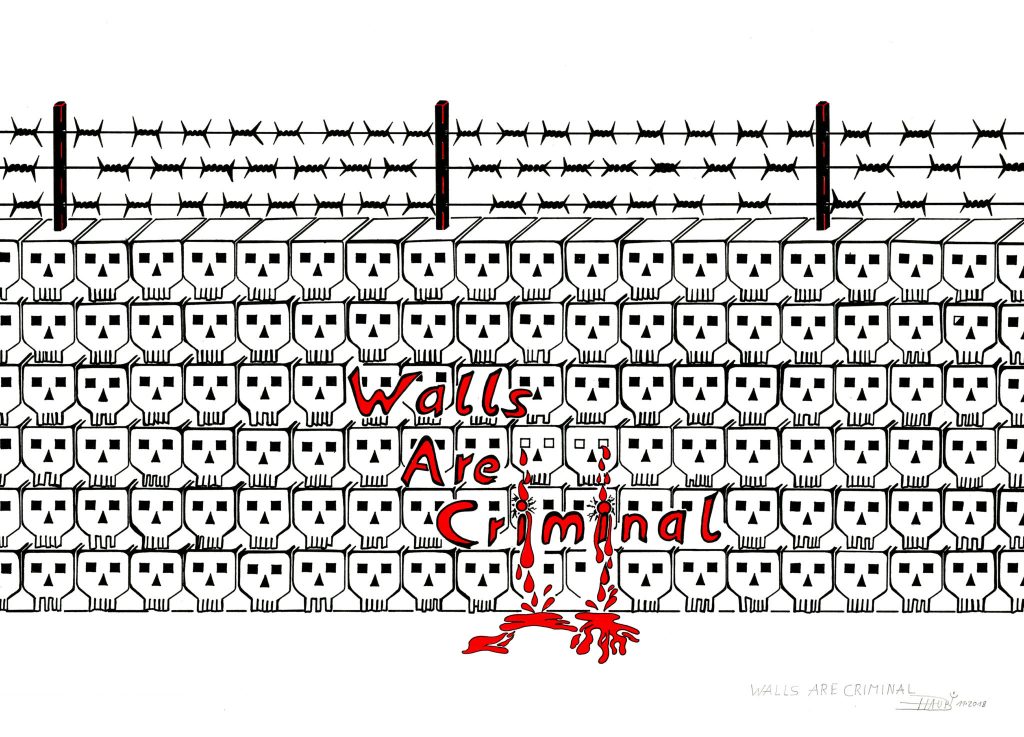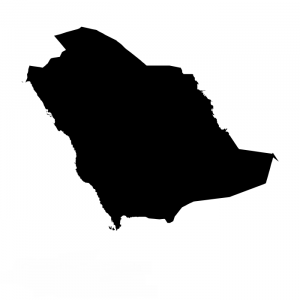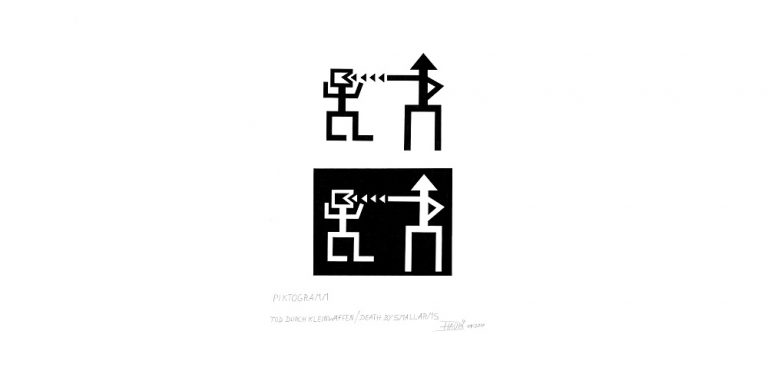
„How corporations across the world make billions on arms and border security technology“
We present selected case studies to document how
corporations profit from arms supplies and from the business of sealing off their borders. Pars pro toto we show in several publications what happens at borders all over the world. We show in the first two examples how companies ruthlessly supply weapons to crisis and war zones, thus driving people to flee. Many of these companies then benefit a second time by additionally supplying components aimed to secure their borders through „lethal walls“ which prevents refugees from fleeing
- Case 06.1 Saudi Arabia
- Case 06.2 Israel
- Case 06.3 USA and Mexico
- Case 06.4 in the Maghreb, in northern Africa
Further examples of deadly isolation will follow.
Download the introduction to case 06 below.
Artwork by Haubi Haubner

06.4 Maghreb-Countries, Egypt, the Sahel and East Africa
Desert-capable wheeled tanks and frigates for Algeria, electronic border security for Morocco, Tunisia and Libya, patrol boats for Egypt – when it comes to sealing off the countries north of the Mediterranean against people fleeing from African countries, the European Union is generous with the supply of armaments and technology for border security.
Part 4 of GLOBAL NET’s Case 06 – STOP THE ARMS TRADE sheds light on the companies that have profited from the fortification of borders in various African countries, and the places this has impacted.
By Wolfgang Landgraeber
Download the long version or summary in multiple languages below.
Graphic: WikimediaCommons
Short Summary
Full Text

06.3 Profiteers of Isolation: The US-Mexican Border
In 2016, Donald Trump’s call for a monumental wall brought the U.S.-Mexico border back on the international agenda. But the closure of this border has a much longer history – and there is nothing to suggest that it will not continue into the future. Trump has merely been a passenger on this decades-old bandwagon. This border knows many profiteers of isolation on both sides: from contractors employing seasonal low-wage harvesters to human traffickers and drug traffickers to arms manufacturers from many countries all the way to arms dealers. At the same time, many organizations on both sides of the border are reaching out to victims and calling for an end to the bloody arms trade.
Part 3 of GLOBAL NET’s Case 06 – STOP THE ARMS TRADE highlights the complex relationships between people, walls, power and money around the US-Mexican border.
By María-Eugenia Lüttmann Valencia
Download the Executive Summary & available attachments below. Further parts will be published subsequently.
USA-Mexico – own graphic using WikimediaCommons
Introductory Executive Summary
Attachment 1: The Geographical Path of the Border

06.2 Deadly Walls – Border Security in Israel
For years Israel has pursued a similar goal to Saudi Arabia: total security of its borders. Today, the country is now completely surrounded by high-tech border security facilities, with the exception of a few sections. The technologies used were largely developed by Israeli defence companies and represent a huge business – also by exporting to states that violate human rights or belligerent states.
By Wolfgang Landgräber
Download long and short versions of the full report below.
„israel” icon by Ted Grajeda, US from the Noun Project. CCBY

Case 06.1 Deadly Walls – Border Security around Saudi Arabia
The desert state of Saudi Arabia has been pushing for years to completely shield itself from its neighbouring states. The kingdom feels threatened. However, the contract for the construction of the border security facilities was not awarded to Saudi companies, but to the European arms company Airbus N.V., which had previously supplied the Saudis with multibillion-dollar weapons systems via Great Britain, including the „Tornado“ and „Eurofighter“ jets. These weapon systems were also used in the war against Yemen, where tens of thousands of civilians died and the refugee misery was exacerbated as it is no longer possible to escape via the Arabian Peninsula
By Wolfgang Landgräber
Download long and short versions of the full report below.
„saudi arabia“ by Ted Grajeda from the Noun Project


